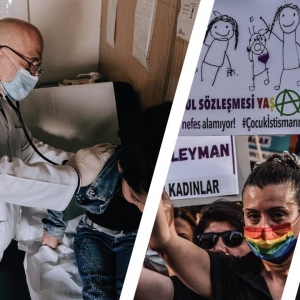
Against the backdrop of simmering protests, endemic economic challenges, the continuing struggle to contain the Covid-19 pandemic, and fallout from the U.S. withdrawal from Afghanistan, The Washington Institute has launched a series of policy papers to help guide the Biden administration’s approach on democracy, reform, human rights, and political change across the Middle East and North Africa.
The series addresses a range of questions: How do changes in the region over the last decade affect the new administration’s approach to these issues? How should the administration best prepare for the “new normal” of protests in the region? What are the policy tools at America’s disposal, and how might they be improved upon? How can Washington turn much-needed attention to new areas of focus, such as corruption and public-sector reform? What does public opinion research tell us about what the region’s publics want in their countries—and from the United States? And where might enhanced U.S.-EU coordination play a constructive role? The proposed answers will assist policymakers in advancing opportunities for reform, preserving U.S. interests, and navigating Middle East realities in the context of America’s global priorities.
In this inaugural essay, David Pollock and Robert Satloff offer broad guidelines for a reimagined American democracy and human rights agenda in the region. At its core is a call for recognizing the many paths to improving human rights, accountable governance, and participatory democracy and their connection to a range of U.S. interests. Progress toward electoral democracy need not always be the top priority in an arena where regional publics are clamoring for basic rights such as healthcare, housing, jobs, and freedom of expression.
.washingtoninstitute
